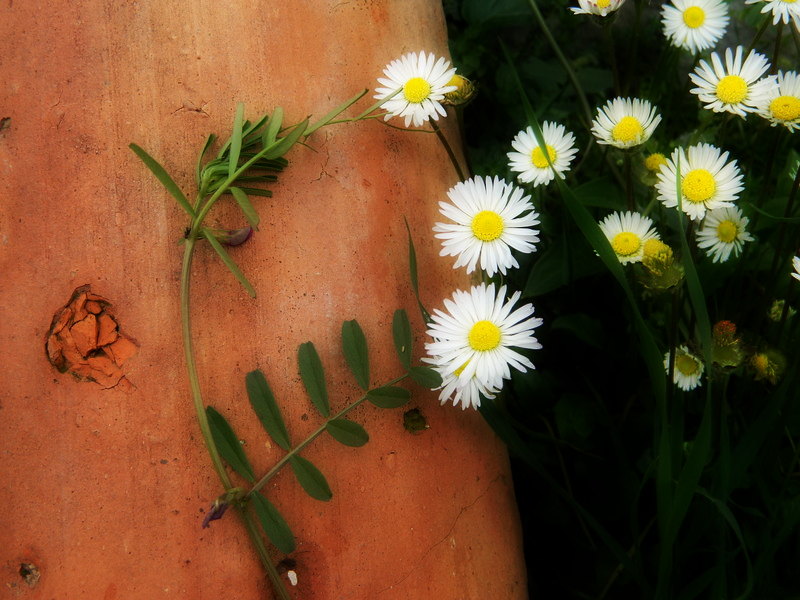La Margherita di Trilussa Posted by Serena on Apr 13, 2017 in Uncategorized
“M’ama … non m’ama” (“he/she loves me … he/she loves me not”). In the innocence of our youth we pulled petals one by one from le margherite (daisies) hoping to discover whether the object of our heart’s desires truly loved us or not. Do today’s kids still do that, or do they now have an app on their iPhone that does it for them?
The daisy filled meadows around us remind me of this childhood game, and of a lovely poem by the Italian poet and writer Carlo Alberto Camillo Mariano Salustri, better know (thank goodness!) as Trilussa (an anagram of his surname).
Trilussa is famous for writing in the Romanesco dialect, and each of his poems contains a moral message, as in the following example, La Margherita, written in 1900. English translation by Serena and Geoff.
La Margherita – The Daisy
| Una bella Margherita che fioriva in mezzo a un prato fu acciaccata da un serpente, da un serpente avvelenato. “Se sapessi — disse er fiore — tutto er male che me fai! E er dolore che me dai quanta gente lo risente! Certamente nu’ lo sai! Ogni donna innammorata, che vô legge la fortuna, ner vedemme m’ariccoje pe’ decide da le foje, che me strappa una per una, s’è infelice o fortunata: e vô vede se l’amore se conserva sempre eguale, e me chiede se l’amante je vô bene o je vô male… Io, pe’ falla più felice, pe’ levalla da le pene, fo der tutto che la foja che je dice “Me vô bene” sia quell’urtima che sfoja. Dove c’è la Margherita c’è er bon core e la speranza, c’è la fede, c’è l’amore ch’è er più bello de la vita… ” Ogni fiore a ‘ste parole rispettoso la guardò, e perfino er Girasole piantò er sole e s’inchinò. |
A beautiful Daisy flowering in a meadow was crushed by a snake, by a poisonous snake. “If you only knew – said the flower – all the harm you do to me! The pain you give me and how many people will be affected by it! Certainly you don’t know! Every woman in love, who wants to read her fortune, picks me when she sees me so as to decide from my petals, which she pulls one by one, whether she’s unhappy or lucky: and wants to see if love remains unchanged, and she asks me if her lover loves her or hates her … I, to make her happier, to take away her pain, do all I can to ensure that the petal which says “He loves me” is the last one she pulls. Where the Daisy is there’s kindness and hope, there’s faith, there’s love which is the best of life … ” Every flower at these words looked at her with respect, and even the Sunflower turned from the sun and bowed down. |
–
You can read more about Trilussa and his poems in this post: Il Testamento di un Albero

Build vocabulary, practice pronunciation, and more with Transparent Language Online. Available anytime, anywhere, on any device.





Comments:
Antonino T DiMarco:
thank you for the opportunity to remember